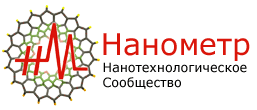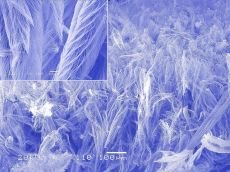11 ноября начинается курс лекций "Основы нанотехнологии" от Rice University на Coursera.
About the Course
Nanotechnology is an exciting research area that spans disciplines from electrical engineering to biology. Over the last two decades the basic science of this area has launched new technologies, the first examples of which are finding their way into commercial products. This four week course will provide students with a bird's eye view into this fast moving area and leave students with an appreciation of the importance and foundation of super-small materials and devices.
Course Syllabus
Nanotechnology: The Basics
Week 1: Small, strange and useful! This first week we will introduce nanotechnology. As you will learn, defining the term itself can be a challenge and the discipline has a rich and somewhat controversial history. We will conclude the week with a tour of the different types of materials in the nanotechnology pantheon that sets up the class for the weeks to come.
Week 2: Electronics when materials are super small. There is no doubt our lives have been changed by the small and powerful computers we now use in everything from our cell phones to our coffeemakers. This week you will learn how nanotechnology has been a part of this revolution and what the limits are to making wires and transistors super, super small.
Week 3: How magnets change when they are made small. Magnetism is quite mysterious and the foundation of such cool technologies as flash drives and MRI imaging. Nanotechnology has played a crucial role in advancing all of these diverse applications and in week 3 you'll gain some insight into how that is possible.
Week 4: Shedding light on nanoscale materials and photonics. Compared to electrons, photons are difficult things to trap and control with normal materials. Nanomaterials offer completely new approaches to manipulating light. Whether its through diffraction, or plasmonics, nanotechnology can provide new capabilities for solid state lasers as well as super resolution microscopes.
Recommended Background
We expect a working knowledge of freshman chemistry and physics, as well as algebra. Access to a spreadsheet program would also be of value. However, we recognize that for some interested participants this knowledge may be rusty and will provide where possible optional review videos to go over terminology and concepts relevant to the week's material.
Suggested Readings
We will refer students to web-based materials where appropriate. There isn't really a standard nanotechnology textbook (yet!).
Course Format
Every week students will be expected to view between 8 and 12 video lectures; optional 'basics' lectures will sometimes be added on to provide background on concepts relevant for the week. Most lectures will have integrated questions to keep students engaged, and these will not count towards any grade. There will also be weekly quizzes, two more integrative problem sets, an optional peer-graded project activity and a final exam.

